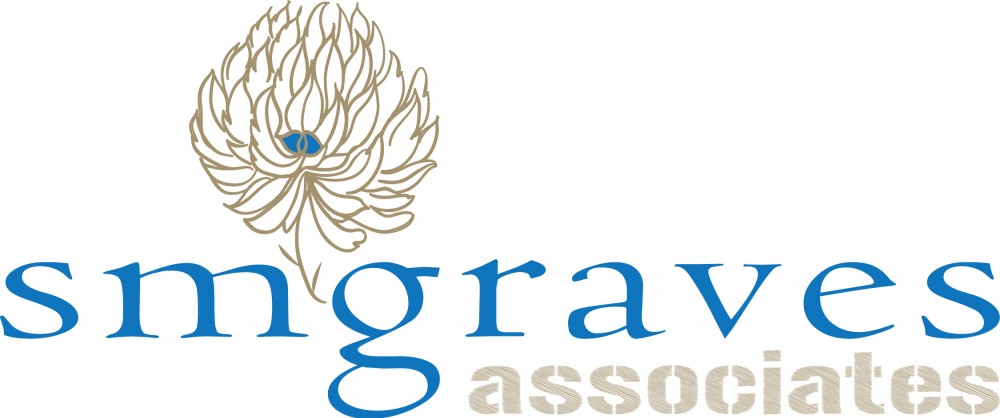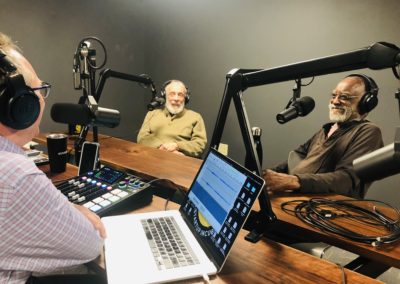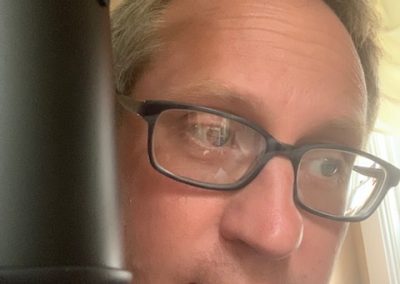A July Fourth Like No Other

Used by permission of author
Scott M. Graves is Founder of M the Media Project and SMGraves Associates. As contributing writer to M, he writes under the series Essays from An Artist andDemocratic Capitalism. He formerly wrote under the additional series Politics, Done Local.
His work at SMGraves Associates focuses on building value in real property by considering the commercial and social ecosystems that play out within our built environments. Community Development that seeks to build pride in place and create economic opportunity for more citizens of our cities and towns.
I’m writing to you, my reader at dawn on the 4th of July 2025. I always get up at dawn, as it is my desire to engage this day for every moment I can. As my citizenship evolved over the years into adulthood, the day has become for me a mix of celebration and contemplation. Thoughts of the past days of July (how extraordinary both Adams and Jefferson made it to THIS day, and passed within hours of each other 50 years after the Declaration!) or of the fateful days of Gettysburg; the debates on the floor of the Second Continental Congress or of days like the day in 1924 when citizens of my hometown, including relatives of mine, refused the Klan to enter the town after riots broke out in a neighboring city.
In recent years the Fourth of July for me is a day of increasing pensive thoughts, contemplating where we may be headed as a citizenry.
When faced with the current set of circumstances as they are, each of us must make their decision as to how their actions will be seen by history, even as for most of us, history will not remember us nor our actions. But tomorrow’s people will remember how we got them to where they will be, dear reader. In this way, the actions of millions do in fact affect what will be and how those alive at that future time will reflect on us.
In a letter to William Stephens Smith, Thomas Jefferson included the quote, “The tree of liberty must be refreshed from time to time with the blood of patriots and tyrants. It is it’s natural manure.”
He was responding to a letter describing Shay’s Rebellion. I’ll give you my seen-through-the-lens-of-a-modern-working-class-man version.
Farmers in Massachusetts came back from fighting the Revolution to find the new state of Massachusetts bankrupt due to a failed expedition to defeat a British installation at Penobscot Bay, Maine. They paid many veterans in land, concentrated in the western third of Massachusetts and other rural places like Bristol and Worcester counties. When war bonds, purchased largely by the state’s elite including John and Abigail Adams came due, Massachusetts had a problem. It was cash strapped and the legislature, divided by urban eastern mercantile traders vs. rural westerners, was in no position to argue with their own. The decision was made to tax land rather than property and goods. The problem was it took years to develop raw land (an issue for those veterans turned farmers). Imagine yourself, having spent years fighting in service to the cause of liberty and taxation without representation. You’re mere years into making your new land profitable. You have plenty of food, your husbandry is bearing fruit. But cash is one thing that’s hard to come by.
The same state that gave you your land a few years back because it couldn’t pay you in cash, sends the tax man to collect. Without specie to give, the tax man takes your hogs, your silage, your fat goose, anything to collect your taxes. And you starve come winter.
That’s when the farmers marched on the courts to save their families.
Jefferson was not on the side of the farmers. Neither were the Adam’s. Not that they didn’t sympathize, as their letters surely tell us they did. Both sides had the difficult choice, as we’re often given in life, of making the better of two horrible decisions. The elites chose their own well-being over those who fought their war. It had profound consequences for us all.
In some sense, I see all of us today in a similar position. We each have to ask, are we the farmers? Are we the leaders holding on to an ever-untenable status quo. You see, Shay’s Rebellion and others across the colonies just like it, led to the end of the government under the Articles of Confederation. It led to our current Constitution, which I believe we must fight for now.
It does not feel as though, but we find ourselves in a privileged position. One out of necessity: the need to revisit and revitalize our constitutional republic.
Circumstances have called citizens to this privilege. It is not an easy position. It’s not one that offers comfort. It is not one that comes without serious risk to personal wealth and welfare, nor for one’s family nor one’s community.
But I believe we are part of a continuum. From the English Civil War and Charles I insistence that it was his alone, not the right of parliament to levy taxes and strip people of rights to the glorious revolution 1688. From our own Revolution and our Civil War; an attempt to determine whether ALL of us on this continent can build a new, inclusive, forward-thinking society based on the rule of law placed equally at opportunity leaving no person out.
Now, whether we like it or not, times call on us. It is our moment and we cannot let this go.
I’m ever encouraged by the history of the state of my birth, Massachusetts. What started off as a patriarchal theocracy. The ideal of ‘The Commonwealth’ has stood since 1630 and requires each of us to define, really re-define what that means. On through the generations, the people of Massachusetts have re-defined what it means to live in a Commonwealth of citizens. This is a responsibility and opportunity joined together. When the King took independence away from Massachusetts after King Phillips War, rescinding Massachusetts Bay’s original independent charter in 1676, the colonists were apoplectic. A century later, the colonists decided for themselves a new future.
We each now have to decide for ourselves what we do next. Let it be known to you, dear reader, I am ever for honoring my birthright to defend the less fortunate, the ostracized, the working class, the casted out, the one needing a roof, a job, a country. And I’m willing to pay any price, fight any person, demand no less than the realization for the true cause of liberty.
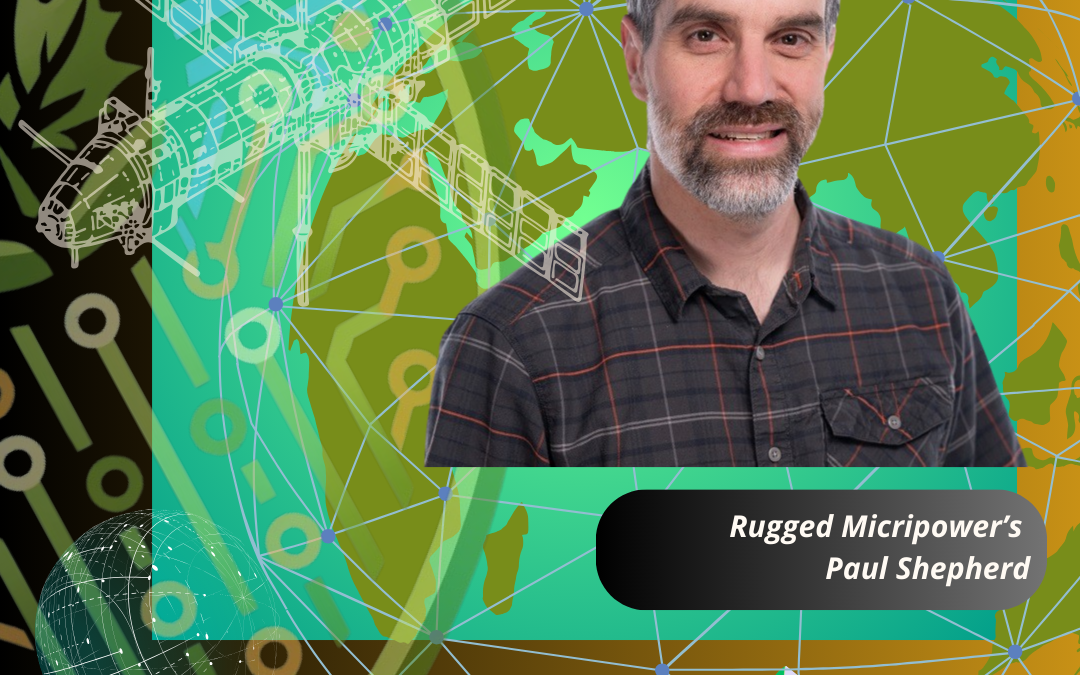
Episode 21 Innova802
w/ Entrepreneur Paul ShepherdPaul Shepherd is no stranger to the Vermont high tech community. He recently launched Rugged MicroPower to take what he’s learned working for leading Vermont tech companies and applying them to build a leader in providing power management...
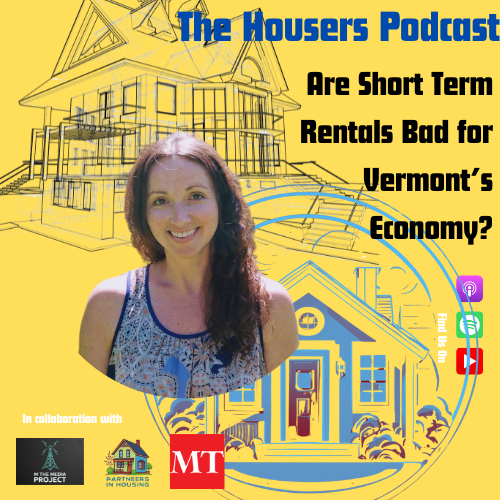
Episode 4 The Housers Podcast
Are Short Term Rentals Bad for Vermont’s Economy? We’re joined by Julie Marks of the Vermont Short Term Rental Alliance (VTSTRA) to take a deeper look at what STRs mean to the Vermont economy and what role STRs play or don’t play in the housing crisis in Vermont and...

Episode 20 Innova802
Adam Locklin takes the helm at VTTAAdam Locklin is the new executive director of the Vermont Technology Alliance(VTTA). His tenure began in January of 2025 after 20+ years with founding Executive Director Jeff Couture at the helm. Adam filled the Innova802 crew in...

Episode 3 The Housers Podcast
Why is Affordable Housing Unaffordable to Build?Host and founder Scott Graves is asking some tough questions for all of us to ask in our own communities. How do we get beyond a place of manufactured scarcity and support all forms of private and public housing...
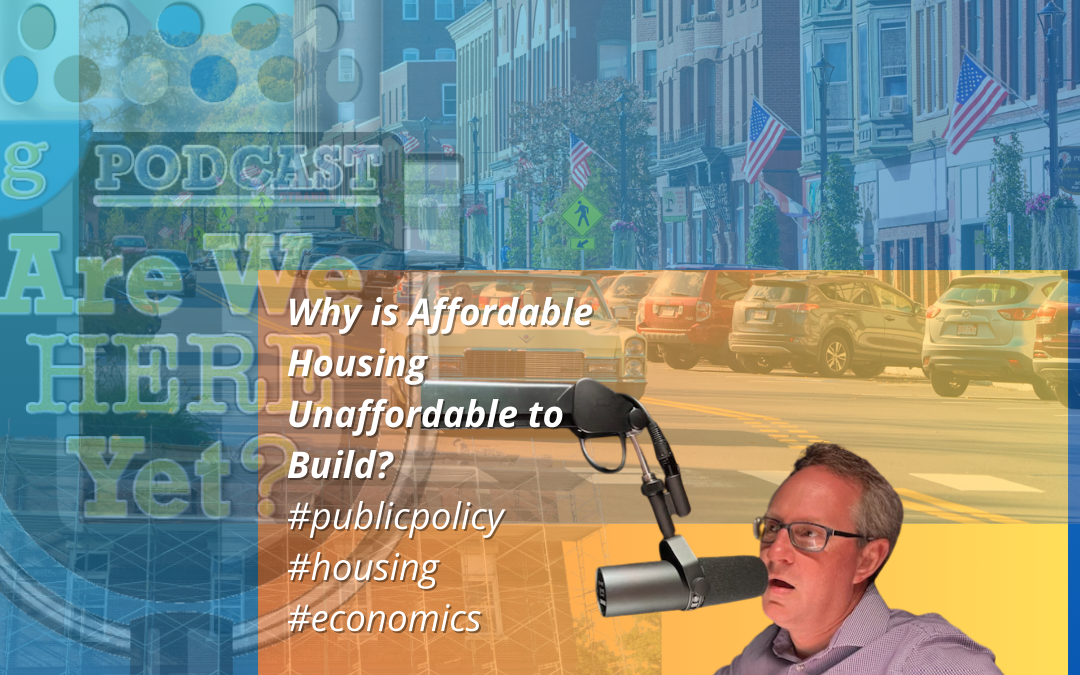
Episode 184 Are We Here Yet?
Host Scott M. Graves with Essays from an ArtistHost and founder Scott Graves is asking some tough questions for all of us to ask in our own communities. How do we get beyond a place of manufactured scarcity and support all forms of private and public housing...
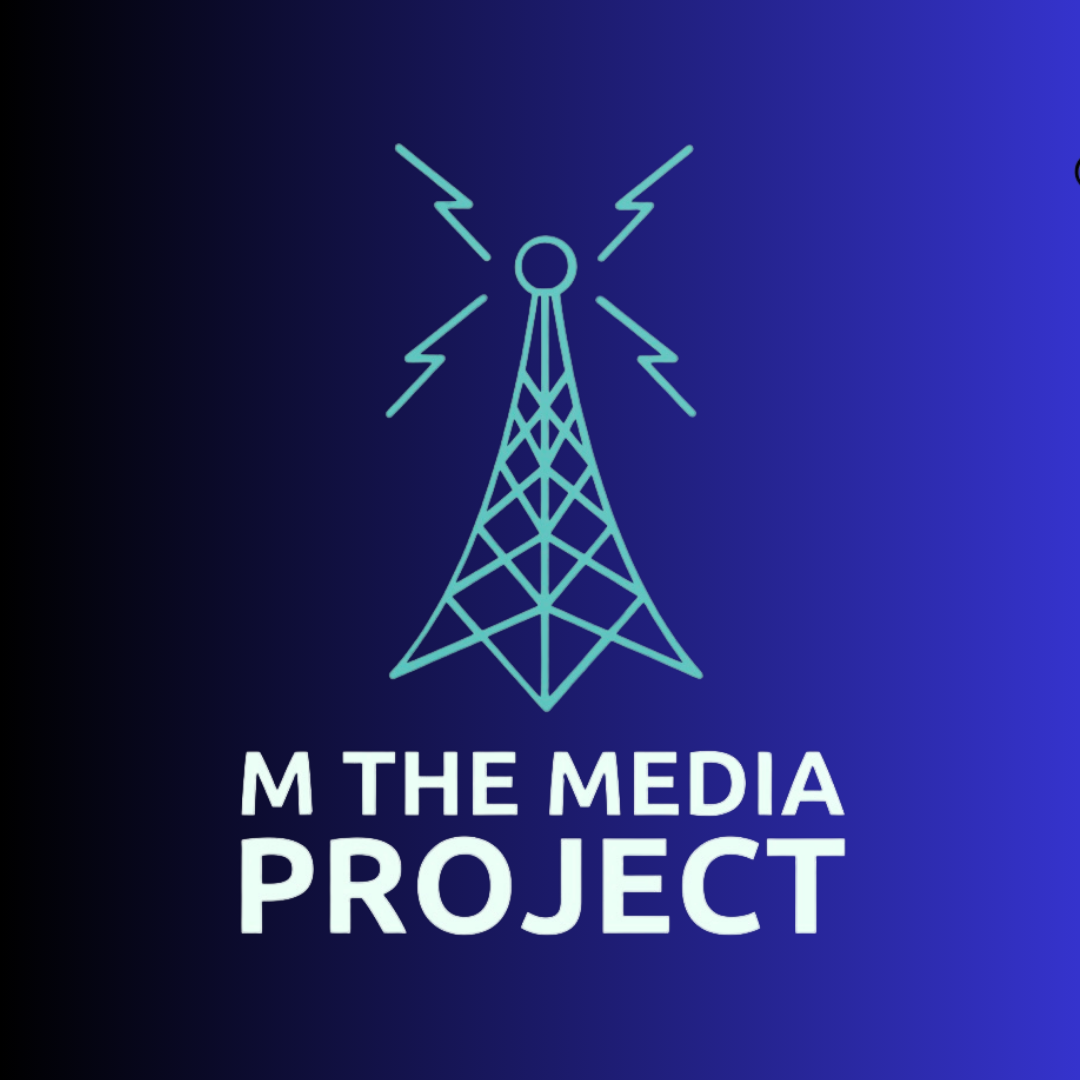
Interested in advertising with us? Perhaps you want a unique way to support the economic development work we accomplish while getting access to our intelligent and informed listeners? Join our roster of supporters. Click that button below to find out more.
